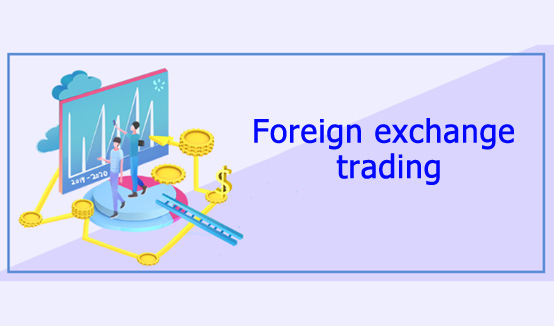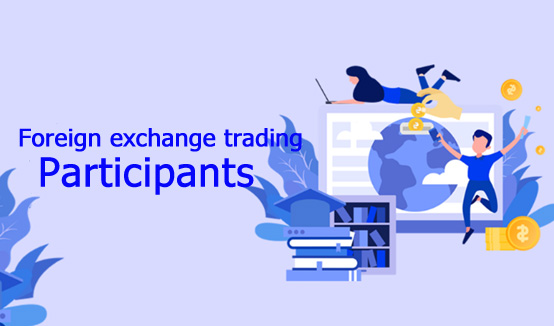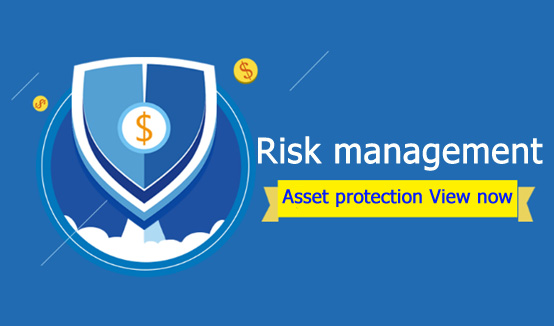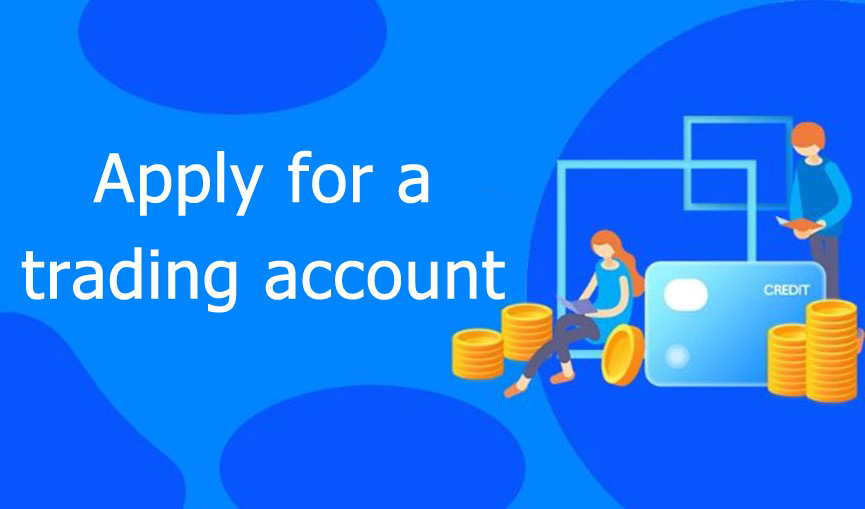
1. Basic concepts of foreign exchange trading
2. The History and Evolution of Forex Trading
2. How foreign exchange transactions operate
2. Strategies of Major Players in Forex Trading
3. Risk Management in Forex Trading
3. Motivation and influencing factors of foreign exchange trading
1. Price formation in the foreign exchange market
2. Economic Indicators Correlation with Forex Market
3. The Impact of Political and Geopolitical Risks on Forex Trading
4. Understand how to trade foreign exchange
Introduction : Forex trading is the act of buying and selling different currencies in the currency market, which is one of the largest financial markets in the world. In the foreign exchange market, investors can achieve different investment purposes such as asset preservation, arbitrage, and speculation through foreign exchange transactions. However, before entering the market, investors need to have a basic understanding of foreign exchange transactions and how they operate. In order to further in-depth Help is provided to learn and practice Forex trading.

Foreign exchange is a product traded in the form of currency pairs. Foreign exchange trading refers to the exchange between one country's currency and another country's currency, such as Euro /USD (EUR/USD) or US Dollar/Japanese Yen (USD/JPY) . Investment The investor simultaneously buys one currency in a currency pair and sells the other currency to make a profit. As foreign exchange trading becomes more and more popular, foreign exchange trading has become one of the most important financial management activities in the current financial market.

(1) Talmudic Code Period: "Exchangers" appeared. They traveled around and collected commissions to make profits by helping others exchange currency. The "exchangers" with a sense of civilization were the earliest "foreign exchange merchants".
(2) Around the 4th century AD: The Byzantine government controlled a company that monopolized foreign exchange trading.
(3) 1472 : Italy founded the oldest existing bank in the world - Banca Monte Dei Paschi di Siena (BMPS for short ) . BMPS was also the first bank in the world . A bank in true form.
(4) 15th century : The Medici family opened banks abroad to meet the currency exchange needs of textile merchants, and used the "current account book" to process transactions. The "current account book" can show foreign exchange accounts and transactions with foreign banks. Current domestic currency account.
(5) 17th and 18th centuries : The foreign exchange market in Amsterdam became active, and British and Dutch agents and merchants conducted frequent foreign exchange transactions.
(6) 1880s : The monetary system with gold as the standard currency was formed. 1880 was the beginning year of modern foreign exchange.
(7) Early 20th century : Global trade grew rapidly and technology continued to advance. A total of two foreign exchange brokers appeared in London, England , and the foreign exchange market continued to expand.
(8) 1971 : The Bretton Woods system collapsed, the U.S. dollar was decoupled from gold, and the foreign exchange market was further liberalized.
(9) 1973 : The era of exchange rate constraints, bank transactions and restricted foreign exchange transactions between countries ended , and market liberalization and trade liberalization were realized.
(10) 1980s : With the advent of computers and related technologies, transnational capital flows accelerated, and time zone markets in Asia, Europe, the United States and other continents were connected to form a complete global foreign exchange market.
(11) Entering the 1990s : The rapid development of Internet technology has made foreign exchange transactions more convenient and faster . Online platforms and foreign exchange transactions have begun to be opened to a wider range of retail traders. The foreign exchange trading market has become the largest and fairest market in the world, and also the world’s largest. The most liquid market.

Central Bank : The Central Bank is the ruler or regulator of the foreign exchange market and one of the most important participants in the foreign exchange market. The central bank regulates the foreign exchange market by formulating monetary policies and exchange rate policies to maintain economic stability and financial security.
Foreign exchange bank : Foreign exchange bank is the main body of the foreign exchange market and a core participant in the foreign exchange market. The bank provides customers with services such as foreign exchange buying and selling, remittance and foreign currency exchange through foreign exchange transactions. Both individuals and enterprises can make cross-border payments through the bank. Operations such as trade settlement and fund dispatch.
Multinational enterprises : Multinational enterprises are important participants in foreign exchange transactions, mainly conducting cross-border payments and foreign currency exchange in the foreign exchange market, with the purpose of trading in the foreign exchange market to achieve currency conversion and exchange rate risk management.
Financial institutions : Financial institutions such as hedge funds, pension funds, and insurance companies are also major participants in foreign exchange transactions. These investment institutions will also invest and trade through the foreign exchange market.
Foreign exchange brokers : In the foreign exchange trading market, foreign exchange brokers are an important bridge for investors to participate in foreign exchange transactions and play a role in matching transactions. Foreign exchange brokers mainly provide investors with trading platforms, trading quotes and other services required for trading.
Individual investors : Individual investors can also participate in foreign exchange transactions through formal online trading platforms, and the purpose of individual investors participating in foreign exchange transactions is to achieve wealth appreciation. For example, investors only need to apply for a foreign exchange trading account at the internationally renowned foreign exchange broker JRFX to conduct real-time foreign exchange transactions. As the investment needs of individual investors rise, the scale of foreign exchange transactions by individual investors is also expanding.
JRFX warm reminder : There are slight differences among foreign exchange market participants in different countries and regions, and the actual situation shall prevail.

Foreign exchange transactions between banks and customers : Also known as the foreign exchange retail market, at this level, banks mainly play the role of an intermediary bridge. Customers participate in foreign exchange transactions through bank counters, and banks earn the difference by buying and selling foreign exchange on their behalf.
Foreign exchange transactions between banks and peers : also known as the wholesale foreign exchange market. When banks have various foreign exchange position gaps in providing services to customers, risks will arise due to exchange rate fluctuations. Foreign exchange banks will sell foreign exchange when they are long. Buy foreign exchange when a short position occurs to adjust the foreign exchange position. Banks will also take the initiative to create positions and conduct larger-scale foreign exchange transactions among peers.
Foreign exchange transactions between banks and the central bank : mainly refer to the foreign exchange transactions conducted by the central bank to stabilize the exchange rate. The central bank will affect the supply and demand of foreign exchange through foreign exchange transactions with foreign exchange banks to stabilize the exchange rate at a certain desired level. superior. Normally, when the exchange rate of a foreign exchange is lower than the expected value, the central bank will buy the foreign exchange from the foreign exchange bank to increase the demand for the foreign exchange and bring the foreign exchange exchange rate back to the expected value; conversely, the central bank will sell foreign exchange to increase supply. , prompting the foreign exchange rate to fall.

(1) Trend trading : Foreign exchange trading participants conduct foreign exchange transactions in the direction of the market trend and hold positions until the end of the market trend.
(2) Counter-trend trading : When a reversal occurs in the foreign exchange market, foreign exchange trading participants enter the market according to the reversal signal to participate in order transactions.
(3) Shock trading : When foreign exchange market shocks occur, foreign exchange trading participants conduct foreign exchange buying and selling transactions based on the price levels of support and resistance levels.
(4) Intraday trading : Foreign exchange trading participants conduct multiple foreign exchange purchases and sales in one trading day.
(5) Arbitrage trading : Foreign exchange trading participants participate in buying and selling transactions in multiple markets at the same time and obtain profits from them.
(6) Swing trading : Foreign exchange trading participants buy and sell during the up and down fluctuations in the foreign exchange market. Generally, they can determine the buying and selling timing based on observing market fluctuations and technical indicators.
(7) Fundamental analysis transactions : Foreign exchange trading participants conduct foreign exchange buying and selling transactions based on analysis of fundamental factors such as economic data and political news.
(8) Technical analysis trading : Foreign exchange trading participants conduct foreign exchange buying and selling transactions after predicting the future trend of the foreign exchange market by analyzing market data such as charts, price trends, and trading volumes.

Market risk : The foreign exchange market is a global market that operates 24 hours a day without price restrictions. The number of foreign exchange participants and the amount of funds are huge. The foreign exchange trading market fluctuates violently, and the foreign exchange trend is affected by multiple factors, making it difficult to judge the trend . Investors need to combine their own risk preferences, financial strength and investment capabilities, enter the market cautiously, and invest rationally.
Transaction risk : In the Internet era, foreign exchange transactions are mainly conducted through online trading platforms. Due to the characteristics of the Internet itself, investors may be unable to place orders or trade, resulting in unnecessary losses. Investors need to choose a legal and formal trading platform and participate in foreign exchange transactions in a safe and stable network environment.
Leverage risk : Foreign exchange margin trading adopts a high-leverage trading model. Trading leverage allows investors to make small gains and reduce investment costs, but it also increases investment risks. Investors need to use trading leverage with caution based on their own risk tolerance and investment capabilities to avoid economic losses caused by excessive leverage.
Funding risk : Some investors who blindly pursue investment returns are keen to invest all their funds in the trading market, increasing investment risks. Investors should use idle funds to participate in foreign exchange transactions, and manage their funds reasonably during transactions, diversify investments, enter the market with light positions, and reduce the risk of a single transaction to the overall investment portfolio.
Emotional control : The emotions of investors when participating in foreign exchange transactions will also have an impact on the final investment results. This requires investors to not only pay close attention to the market and adjust investment strategies, but also have good emotional control abilities, develop and Maintain a good trading mentality and avoid blindly following the crowd and making arbitrary decisions.
The price of the foreign exchange market is formed in the foreign exchange trading activities. Foreign exchange trading participants enter the foreign exchange trading market and buy or sell foreign exchange products based on actual transaction needs and judgments of the foreign exchange market trends. These trading activities of the foreign exchange trading participants form prices in the foreign exchange market.
The price in the foreign exchange market is affected by many factors such as supply and demand, economic indicators, political events, international trade conditions, monetary policy and fiscal policy.
Economic indicators mainly include gross domestic product (GDP data ), non-agricultural data , retail sales, consumer confidence index, interest rate decisions, trade data and inflation data, etc. These important economic data can reflect a country's economic conditions and trends. , thus affecting the formation of foreign exchange market prices. In short, economic indicators are one of the most important factors affecting the foreign exchange market.
When economic indicators reflect that the country's economy is stable, people are optimistic about the economic outlook, which helps to increase the value of the country's currency; when economic indicators reflect that the country's economy is unstable, with a large number of workers unemployed and the risk of inflation rising, people are optimistic about the economic outlook. The economic outlook was pessimistic and the country's currency depreciated.
In addition, factors such as political stability and international trade will also have an impact on the foreign exchange market. Investors should focus on this and combine various influencing factors to comprehensively judge the trend of the foreign exchange market and make correct decisions.
Political and geopolitical risks may have an impact on a country's economic, trade and financial environment, and thus on foreign exchange transactions involving trade or investment with that country.
(1) Political stability : When a country's political stability is poor, its economic and trade environment is poor, which leads to restrictions on foreign exchange trading activities; when a country's political stability is good, its economic and trade environment becomes better, thus Attract more participants to Forex trading.
(2) Trade protectionism : The decision of trade policy is not only an economic choice of the national government, but also a political and social decision. If a country chooses to adopt protectionist measures, it may have an adverse impact on foreign exchange trading.
(3) Geopolitical risks : When there are geopolitical risks in a country or region, it may increase or decrease the interest of foreign exchange trading participants in investing in that place, resulting in fluctuations in the exchange rate of that place's currency. For example, when a country experiences war or political change, the country's currency depreciates and investors lose confidence.
(1) Choose a trading platform : Investors need to choose a formal and reliable foreign exchange trading platform. Ordinary investors can participate in foreign exchange investment through online foreign exchange traders who hold legal business qualifications and are subject to formal supervision. Foreign exchange trading platforms generally provide investors with trading platforms, market conditions, analytical tools and other investment services.
(2) Open a foreign exchange account : After selecting a suitable trading platform, follow the prompts on the account opening page of the platform, fill in the investor's personal information, and apply for a trading account. Generally, there are real accounts and demo accounts available.
(3) Confirm trading currency pairs : Based on market supply and demand and fluctuations in global economic conditions, have an in-depth understanding of the different currency pairs provided by the platform, and carefully select the currency pairs that need to be traded.
(4) Decide to make a single direction : Use the analysis methods of fundamental analysis and technical analysis to judge the trend of the foreign exchange market and decide to make a single direction.
(5) Confirm the transaction volume : Confirm the required transaction quantity based on the investor's personal risk tolerance, economic strength and investment ability.
(6) Execution of transactions : Place orders for transactions. Investors can choose spot transactions, forward transactions or other transaction methods.
(7) Monitor transactions : After successfully placing an order, you must continue to pay attention to market changes and make reasonable use of the analysis tools and real-time quotes provided by the platform to track the progress of the transaction.
(8) End the transaction : When you find that the market situation is not conducive to this transaction, you can choose to close the position and end the transaction. You only need to issue a sell order through the platform and confirm that the transaction is completed.
Conclusion : Risks and opportunities coexist in the foreign exchange trading market. Investors need to gradually learn and master the basic knowledge and skills of foreign exchange trading in the entry-level stage, and continue to accumulate experience and improve trading skills in practice. At the same time, in actual trading operations, we should increase our awareness of risk prevention, always remember that investment is risky, and we need to be cautious when entering the market.

Views: 1648

Likes: 0
